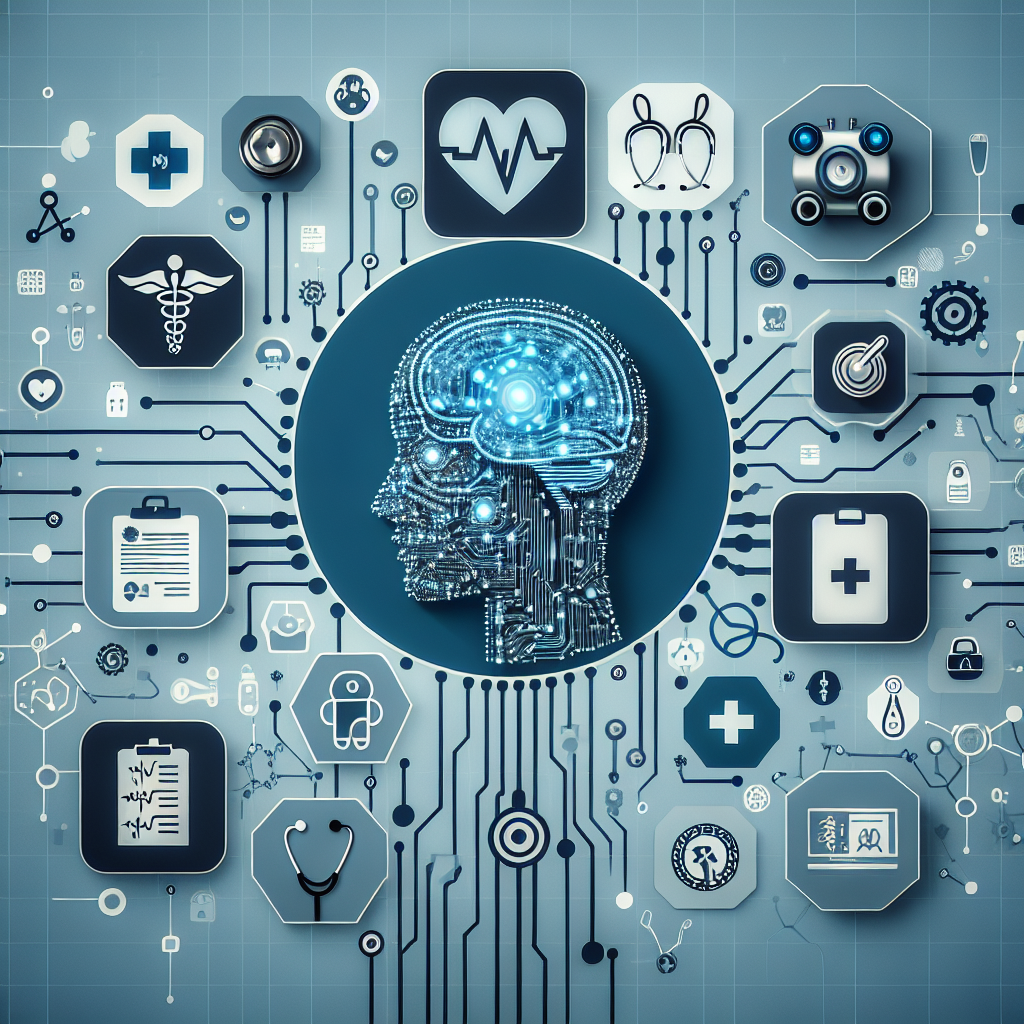In recent years, there has been a significant increase in the use of artificial intelligence (AI) in various industries, including healthcare. One area where AI integration has been particularly beneficial is in telehealth. Telehealth, also known as telemedicine, is the use of technology to provide healthcare services remotely, often through video conferencing or mobile apps. The integration of AI in telehealth has the potential to revolutionize the way healthcare is delivered, making it more efficient, cost-effective, and accessible to patients.
AI can be used in telehealth in a variety of ways, from diagnosing illnesses to monitoring patient progress and even providing personalized treatment plans. One of the key benefits of using AI in telehealth is its ability to analyze vast amounts of data quickly and accurately, leading to more accurate diagnoses and treatment recommendations. AI can also help healthcare providers better manage their caseloads, by identifying which patients require immediate attention and which can be monitored remotely.
Another advantage of AI integration in telehealth is its ability to improve patient outcomes. By analyzing data from various sources, including electronic health records, wearable devices, and patient input, AI can provide healthcare providers with a more comprehensive view of a patient’s health, leading to more personalized and effective treatment plans. This can lead to better outcomes for patients, as well as reduced healthcare costs and improved efficiency for providers.
One area where AI is particularly useful in telehealth is in the field of mental health. AI-powered chatbots and virtual assistants can provide patients with support and guidance, as well as monitor their progress over time. This can be especially helpful for patients with mental health conditions who may not have access to traditional therapy or counseling services. AI can also help to identify early warning signs of mental health issues, allowing for early intervention and treatment.
Despite the many benefits of AI integration in telehealth, there are also some challenges and concerns that need to be addressed. One of the main concerns is the potential for bias in AI algorithms, which could lead to inaccurate diagnoses or treatment recommendations. It is important for healthcare providers to carefully evaluate and validate AI algorithms before implementing them in telehealth services, to ensure that they are accurate and unbiased.
Another challenge is the issue of data privacy and security. With the use of AI in telehealth, there is a need to collect and analyze large amounts of sensitive patient data. It is essential for healthcare providers to implement robust security measures to protect this data from unauthorized access or breaches. Patients also need to be informed about how their data is being used and stored, and given the option to opt out if they have concerns about privacy.
One of the most frequently asked questions about AI integration in healthcare telehealth is whether it will replace human healthcare providers. While AI can certainly assist healthcare providers in their work, it is unlikely to completely replace human doctors and nurses. Healthcare is a complex and nuanced field that requires empathy, critical thinking, and interpersonal skills, which AI is not able to replicate. Instead, AI can complement the work of healthcare providers by helping them make more informed decisions and providing support in areas such as diagnosis, treatment planning, and monitoring patient progress.
Another common question is whether AI in telehealth is cost-effective. While there may be initial costs associated with implementing AI technology in telehealth services, the long-term benefits can outweigh these costs. AI can help healthcare providers streamline their workflows, reduce administrative tasks, and improve patient outcomes, leading to cost savings in the long run. Additionally, AI can help to improve access to healthcare services for patients in remote or underserved areas, by providing them with virtual consultations and monitoring services.
Overall, the integration of AI in healthcare telehealth has the potential to revolutionize the way healthcare is delivered, making it more efficient, cost-effective, and accessible to patients. While there are challenges and concerns that need to be addressed, the benefits of AI integration in telehealth are clear. By leveraging the power of AI technology, healthcare providers can improve patient outcomes, reduce healthcare costs, and enhance the overall quality of care. As the field of AI continues to evolve, we can expect to see even more innovative applications of this technology in healthcare telehealth in the future.

